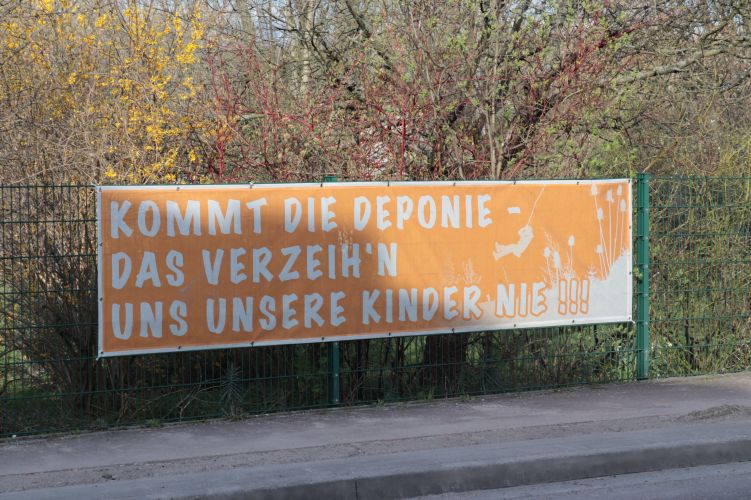
Negotiation of resources and waste takes place against a backdrop of urgent transgression of what Rockström et al. (2009) call “planetary boundaries,” namely biodiversity loss, climate change, and similar processes. Kim Fortun’s concept of “Quotidian Anthropocenes” points to the interconnectedness of these planetary systems with phenomena observable in everyday life. Fortun characterizes societal relations of production as “late industrialism” (2014), where the effects and deficits of industrial production are becoming increasingly apparent. The question arises as to how the byproducts of production caused by industry, such as air and water pollution and the waste generated, are distributed. Steve Lerner (2012) criticizes the fact that environmental burdens often primarily affect already disadvantaged populations. This happens partly through spectacular accidents, but often also through insidious processes that Rob Nixon calls “slow violence.”
Waste is generated in all industrial production. Despite the efforts of the European Union, the German government and the state of Saxony-Anhalt to establish a circular economy, new landfills still have to be built. These landfills are used to store waste that either cannot be technically recycled or whose reuse is not economically feasible. The chemical triangle between Halle (Saale), Merseburg and Bitterfeld has a long history of mining and chemical production. In addition to the conventional waste that accumulates everywhere, contaminated sites from potash and coal mining as well as the chemical sites in Schkopau, Leuna and Bitterfeld-Wolfen also have to be managed here. Waste is sometimes dumped in former mines or on the site of former opencast mines. In the process, waste is also imported to Saxony-Anhalt from other German states and, in some cases, from other EU countries.
A network of citizens’ initiatives (https://wir-für-sachsen-anhalt.de/) criticizes this practice. They raise the question of whether the import of waste represents a fair distribution of the negative consequences of industrial production. They also criticize the fact that the safety of the landfill sites is not sufficiently checked and monitored. The companies that operate the landfills argue that they are performing an unavoidable public service task. Conflicts between the disposal and construction companies, the citizens’ groups, and the environmental and administrative authorities primarily concern the safety of the sites and the risk management of toxic substances, as well as other burdens on local residents, such as dust drifts.
This research project examines how citizens’ initiatives acquire knowledge about the risks of constructing and operating landfills, what forms of protest they choose, and how their engagement shapes their perceptions of democratic participation processes and political attitudes. It also reflects on the ways in which the project, understood as “public anthropology,” can engage in debates and what effects this has.
To answer these questions, I conduct collaborative research with individuals from the network of citizens’ initiatives. In addition to interviews and go-alongs, there is also participation in network meetings and public events of the citizens’ initiatives. With the help of problem-centered essays on landfill sites on the Platform for Experimental and Collaborative Ethnography (PECE), which are designed on the basis of the input of the citizens’ initiatives, a dialogue on the discourses with the help of which the citizens* describe their situation and within which they see their options for action takes place.
Email: philipp.baum@student.uni-halle.de
References
Fortun, Kim. 2014. From Latour to Late Industrialism. HAU: Journal of Ethnographic Theory 4 (1): 309-329.
Fortun, Kim, James Adams, Tim Schütz, and Scott Gabriel Knowles. 2021. Knowledge infrastructure and research agendas for quotidian Anthropocenes: Critical localism with planetary scope. The Anthropocene Review 8 (2):169-182.
Lerner, Steve. 2012. Sacrifice Zones: The Front Lines of Toxic Chemical Exposure in the United States. MIT Press.
Nixon, Rob. 2011. Slow Violence and the Environmentalism of the Poor. Harvard University Press.
Rockström, Johan, Will Steffen, Kevin Noone, Åsa Persson, F. Stuart Chapin, Eric F. Lambin, Timothy M. Lenton, Marten Scheffer, Carl Folke, Hans Joachim Schellnhuber, Björn Nykvist, Cynthia A. de Wit, Terry Hughes, Sander van der Leeuw, Henning Rodhe, Sverker Sörlin, Peter K. Snyder, Robert Costanza, Uno Svedin, Malin Falkenmark, Louise Karlberg, Robert W. Corell, Victoria J. Fabry, James Hansen, Brian Walker, Diana Liverman, Katherine Richardson, Paul Crutzen, and Jonathan A. Foley. 2009. A Safe Operating Space for Humanity. Nature 461 (7263): 472-475.
